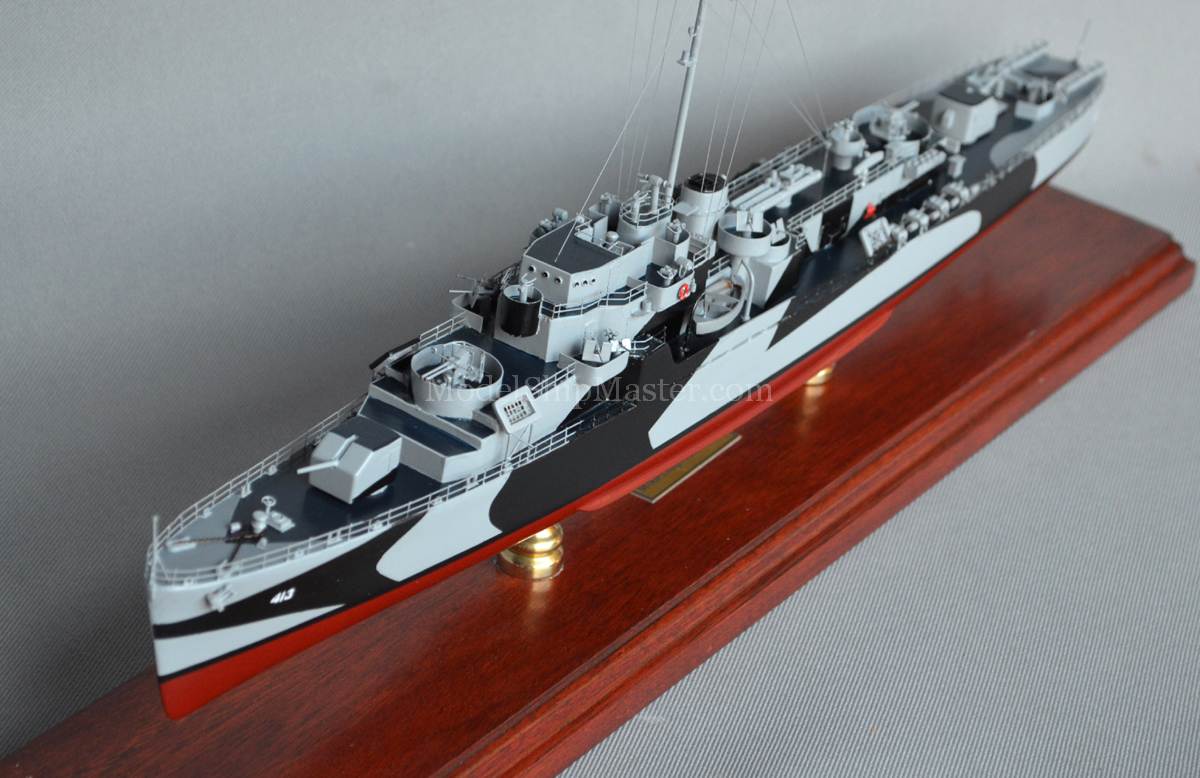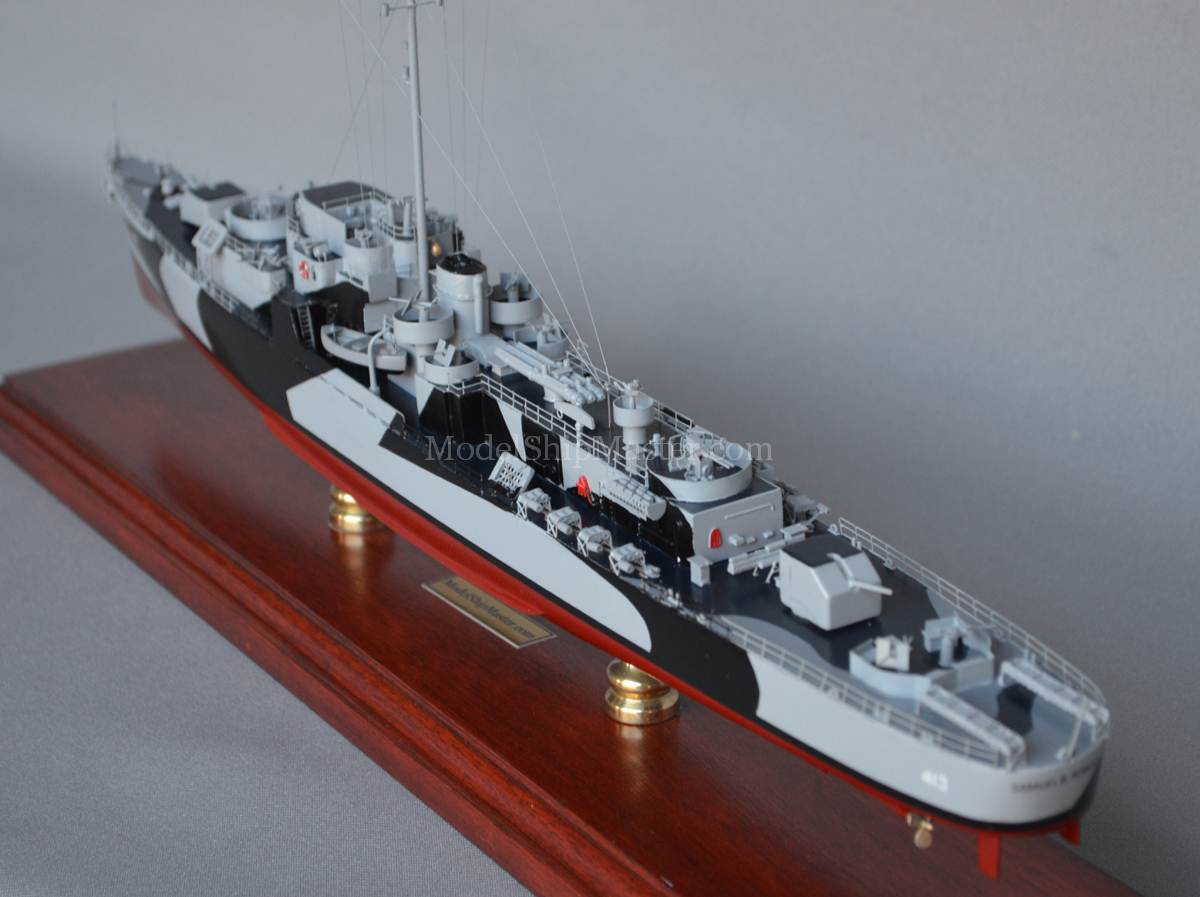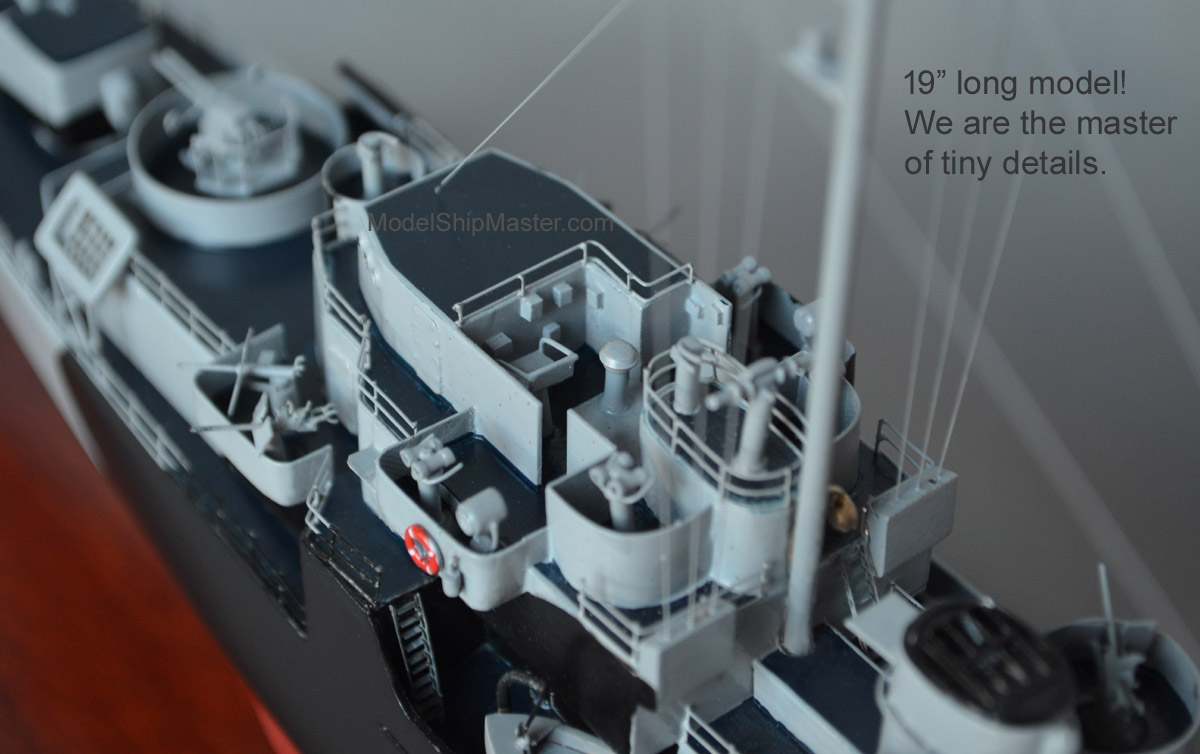|
USS
Samuel B. Roberts
Destroyer
Escort That Fought Like a Battleship” in the Battle of
Leyte Gulf
USS Samuel B. Roberts
belonged to the John C. Butler class destroyer escort.
The class was also known as the WGT type from their Westinghouse geared turbine drive that featured a
12,000 hp with double reduction gears.

USS
Samuel B. Roberts was built in 1944 and was immediately
sent to assist the Task Force 77.4.3, nicknamed Taffy 3
in the Pacific Ocean.
In August 1944, USS Samuel B. Roberts steam to the Leyte
Gulf area near the eastern Philippines, and upon
arrival, commence operations with the Northern Air
Support Group off the Island of Samar.

The Battle of Samar Island occurred on the 25th of
October and it lasted for several hours. It was the
centermost part of the large-scale naval/air battle for
the Leyte Gulf, which lasted from 23rd to 26th of the
October, 1944. The USS Samuel B. Roberts was assigned to
protect Taffy 3’s small escort carriers, which were
serving as bases for small bombers and fighters that
were supporting the Army ground attack on the island.
They were steaming off the eastern coast of Samar.
It was
the early morning of 25th of October, and the red sun
reflected its image on the ocean’s surface. All of a
sudden, there were ships behind the sun’s reflection —
a 23-vessel-strong task force under the command of Vice
Admiral Takeo Kurita — appeared out of nowhere on the
horizon and opened fire.
Taken
by surprise and extremely overpowered, USS Samuel B.
Roberts was indeed in a tight spot. Nevertheless, it
decided to charge the Japanese ships without question.
The CO, Lieutenant Commander Robert W. Copeland
announced to his men: “We’re making a torpedo run. The
outcome is doubtful, but we will do our duty.”
The ship was being heavily fired upon, and a thick
smokescreen lingered on the troubled waters. The ship
centered its course right towards the Japanese heavy
cruiser Chōkai, advancing with piercing speed. It was
faced with the Chōkai’s forward 8" guns and under direct
fire. During the battle, Samuel B. Roberts — designed
for 23–24 kn — reached 28.7 kn.
USS Roberts had moved so close in its ferocious charge,
that the enemy guns could not depress enough to hit her
and the shells simply passed overhead. Many hit the
carrier Gambier Bay, which was trying its best to
maneuver for retreat.
Once
within torpedo range USS Samuel Roberts launched her
three Mark 15 torpedoes. One blew off Chōkai’s stern. It
was as if it were a ballgame, as shells were still
incoming. USS Samuel B. Roberts then fought with the
Japanese ships for a further hour, firing more than six
hundred 5" shells, and while maneuvering at very close
range, mauling Chōkai’s superstructure with her 40 mm
and 20 mm anti-aircraft guns.
.jpg)
The
Japanese landed two hits on the Roberts, the second of
which damaged the aft 5-inch gun. This damaged gun
suffered a breech explosion shortly thereafter which
killed and wounded several crew members. With her
remaining 5" gun, Roberts set the bridge of the heavy
cruiser Chikuma on fire and destroyed the “Number Three”
gun turret, before being hit by three 14" shells from
the battleship Kongō. The shells tore a hole 40 ft long
and 10 ft wide on the port side of her aft engine room.
Gunner’s Mate Third Class Paul H. Carr who was in charge
of the damaged aft 5" gun mount decided to make the
ultimate sacrifice. He had fired nearly all of its 325
stored rounds in 35 minutes before a breech explosion.
Carr was found bleeding at his station from a severe
intestinal wound, begging for help to load the last
round he was holding into the breech. It was the last he
did. The heavy cruiser Chōkai sunk on that day, but so
did the Samuel B. Roberts.

At 09:35, two hours into the battle, the order was given
to abandon ship. She sank 30 minutes later, with 90
sailors.
The 120 survivors from the ship spent 50 hours out on
the open sea, clinging to three life rafts before they
were rescued. Gunner’s Mate Third Class Paul H. Carr was
awarded a Silver Star, and a guided missile frigate was
later named after him. The guided missile frigates
Samuel B. Roberts and Copeland and were also named for
the ship and its captain.
The role of the USS Samuel B. Roberts in the Battle of
Samar Island inspired generations of Navy servicemen.
For its extraordinary performance and sacrifice, the
ship was awarded one Battle Star, and it was mentioned
in the Presidental speech given after the battle, as one
of the shiniest examples of heroism.
At the U.S. Naval Academy, in Alumni Hall, USS Samuel B.
Roberts was referred as the “destroyer escort that
fought like a battleship” in the Battle of Leyte Gulf.

We build this
primarily wooden John
C. Butler class
model in two sizes:
25.5" (1/144 scale)
and 37" (1/100 scale).
Model is built per commission only. We require only
a small deposit to start the process. Please click here for
more details.
Click here to
learn about authentic
warship
models.
Learn more about the John
C. Butler class here:
https://en.wikipedia.org/wiki/John_C._Butler-class_destroyer_escort
|